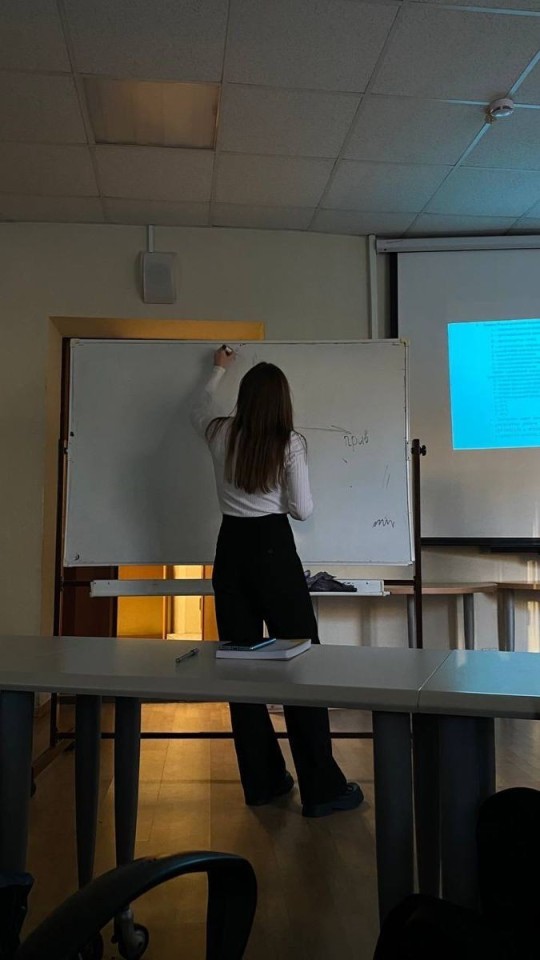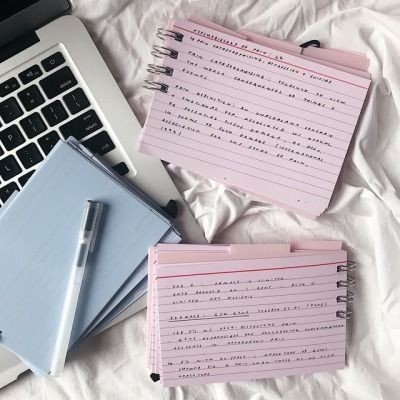Mr-froggio - Canon World ;

More Posts from Mr-froggio and Others
"Dont drink coffee after 2 PM" is such a neurotypical issue that sounds made up. Such a thing couldnt happen to me, ADHD Georg, who has coffee past 9:30 PM and can still fall asleep freely because I have a natural toxicity resistance to caffeine.


1/6 days before hoa quiz!
my study technique while studying history is basically like telling a story, from the beginning to the present time. since everything is history is connected to each other, its rlly easier that way.
anw, i badly need a copy of textbook of this book, but its not available online T_T, so I'll stick to bulletin points of powerpoint.
I have 3 references as I study, 1) my notebook during lecture, 2) tablet for the ppt, 3) photo from the whiteboard, its kinda lot bcos i need to make i understand everything, and i won't fail! (100 points, 50 items).
Energy is vital as we study, thankful for my mom for the cookies and ofc water bottle! water is the key.
gl to everyone!

![133 Days Of Uni [34/133]](https://64.media.tumblr.com/80d3c11cdde39c5602d53e5ca650ddbc/ab2d81296fa1ad7b-e0/s640x960/b51f64db8ae7f5afee30870613bedf76811bd4cb.jpg)
![133 Days Of Uni [34/133]](https://64.media.tumblr.com/6eed600fa1b59c403d5962ab346c2544/ab2d81296fa1ad7b-22/s640x960/2ea9fbd214495f83e46282c52b9f49720f5e21d2.jpg)
133 Days of Uni [34/133]
🌞08/09/24🌛
🎧song of the day: A&W - Lana Del Rey
Today was a chill day as well, I spent the morning doing some chores and then I started doing some marketing analysis for one of my classes, then I decided to plan my week and deadlines while listening to music










Belle (竜とそばかすの姫) MV.
me studying art rn

Henri Matisse
![text id: [ The floor seemed wonderfully solid. It was comforting to know I had fallen and could fall no farther.]](https://64.media.tumblr.com/2813c67b7aab168fd3af6577af931297/12e1a813b2a97db0-d1/s500x750/f86f65f55e60779dd7b7a05f6909e2941ff4533e.jpg)
— Sylvia Plath, "The Bell Jar"
parents are so crazy because they can say the most fucked up shit to you when your brain is forming and it sets the tone for your whole adult mind set and then they forget about it the next day
Mastering academic excellence
Becoming an academic weapon is about more than just studying hard, it’s about studying smart.


1. The power of a minimalist study space
Your study environment plays a crucial role in your ability to concentrate and absorb information. A cluttered desk or disorganized room can lead to distractions, stress, and reduced productivity. On the other hand, an orderly and minimalist space promotes clarity of thought and focus.
Why Minimalism Matters
Reduces Distractions A minimalist setup limits visual and mental distractions. With fewer items in your field of vision, your brain can focus more on the task at hand.
Promotes Calmness An organized space creates a sense of calm, reducing stress and anxiety, which are common barriers to effective studying.
Enhances Efficiency Knowing exactly where your materials are saves time and keeps you in the flow of your work, avoiding interruptions caused by searching for misplaced items.
How to Create the Ideal Study Space
Declutter Regularly Keep only essential items on your desk. Store books, papers, and other materials neatly in drawers or shelves.
Personalize Mindfully Add a few personal touches, like a plant or a motivational quote, but avoid overloading your space with unnecessary objects.
Ensure Comfort Choose a comfortable chair, good lighting, and a desk at the right height to prevent physical discomfort during long study sessions.


2. Mastering active learning techniques
Active learning is the cornerstone of effective studying. Unlike passive methods, such as simply reading or highlighting, active learning engages multiple areas of your brain, enhancing comprehension and retention.
Key Active Learning Techniques
Summarization After reading a section of your textbook or attending a lecture, summarize the main points in your own words. This forces you to process the information deeply, improving understanding and memory.
Self-Testing Regularly quiz yourself on the material. This not only reinforces your knowledge but also highlights areas where you need further review. Tools like flashcards or apps such as Anki can be particularly effective.
Teaching Others Explaining concepts to others is one of the best ways to solidify your understanding. This could be done with a study partner, in a group setting, or even by teaching an imaginary audience.
Mind Mapping Create visual representations of the material, such as diagrams or mind maps. This technique helps you see connections between ideas and organizes complex information into a more digestible format.


3. Study aids for enhanced learning
Study aids are tools and resources that can support and enhance your learning process. When used correctly, they can make studying more efficient and effective.
Types of Study Aids:
Flashcards Ideal for memorization, flashcards help reinforce knowledge through active recall and spaced repetition. Digital flashcards allow for easy organization and accessibility on the go.
Mind Maps These visual tools help break down complex concepts and illustrate relationships between ideas, making it easier to grasp and remember large amounts of information.
Practice Tests Taking practice exams familiarizes you with the format and types of questions you might encounter, reducing test anxiety and highlighting areas for improvement.
Educational Apps Numerous apps cater to various aspects of studying, from organization (Notion, Evernote) to subject-specific learning (Duolingo for languages).
How to Use Study Aids Effectively
Incorporate Them Regularly Don’t wait until the last minute to use study aids. Regular integration into your study routine ensures continuous reinforcement of material.
Customize Your Tools Tailor flashcards, mind maps, and other aids to suit your learning style and the specific material you need to master.
Combine Methods Use a mix of study aids to address different types of content and to keep your study sessions dynamic and engaging.


4. Staying Healthy
MENS SANA IN CORPORE SANO
The ancient adage "mens sana in corpore sano," meaning "a healthy mind in a healthy body," underscores the importance of physical well-being in achieving academic success. Neglecting your health can lead to burnout, decreased cognitive function, and lower academic performance.
Physical Health and Academic Performance
Nutrition A balanced diet fuels your brain, improving concentration, memory, and energy levels. Incorporate brain-boosting foods like fruits, vegetables, nuts, and fish rich in omega-3 fatty acids.
Exercise Regular physical activity increases blood flow to the brain, enhances mood through the release of endorphins, and reduces stress. Even short, daily exercise sessions can make a significant difference in your mental clarity and stamina.
Sleep Adequate sleep is essential for memory consolidation and cognitive function. Aim for 7-9 hours of quality sleep each night to ensure you are well-rested and ready to tackle your studies.
Mental Health and Academic Success
Stress Management Practice mindfulness techniques such as meditation or deep breathing to manage stress. Regular breaks during study sessions can also prevent burnout.
Work-Life Balance Ensure you have time for relaxation and social activities. A balanced life contributes to mental well-being, which in turn supports academic success.
Positive Mindset Cultivate a growth mindset, viewing challenges as opportunities for growth rather than as obstacles. This perspective not only enhances resilience but also keeps you motivated in your academic pursuits.
[photos from Pinterest]

— Fiona Apple
-
 loveforthecreed liked this · 3 weeks ago
loveforthecreed liked this · 3 weeks ago -
 kklaudia2002 liked this · 1 month ago
kklaudia2002 liked this · 1 month ago -
 kleineromantikerin liked this · 3 months ago
kleineromantikerin liked this · 3 months ago -
 summerhaterxx liked this · 4 months ago
summerhaterxx liked this · 4 months ago -
 iamnothingwithoutyou liked this · 4 months ago
iamnothingwithoutyou liked this · 4 months ago -
 dollfacediary liked this · 4 months ago
dollfacediary liked this · 4 months ago -
 xoxotrailerparkprincess reblogged this · 4 months ago
xoxotrailerparkprincess reblogged this · 4 months ago -
 xoxotrailerparkprincess liked this · 4 months ago
xoxotrailerparkprincess liked this · 4 months ago -
 mmmami liked this · 4 months ago
mmmami liked this · 4 months ago -
 xaelara liked this · 4 months ago
xaelara liked this · 4 months ago -
 redribbonsandblood reblogged this · 4 months ago
redribbonsandblood reblogged this · 4 months ago -
 n1ght-scented-stock liked this · 9 months ago
n1ght-scented-stock liked this · 9 months ago -
 3l1x1r liked this · 9 months ago
3l1x1r liked this · 9 months ago -
 3lvislove liked this · 10 months ago
3lvislove liked this · 10 months ago -
 giovannamarie12 liked this · 10 months ago
giovannamarie12 liked this · 10 months ago -
 diaryofasweetgirl liked this · 10 months ago
diaryofasweetgirl liked this · 10 months ago -
 xoxokamrynxoxo-blog liked this · 10 months ago
xoxokamrynxoxo-blog liked this · 10 months ago -
 mr-froggio reblogged this · 10 months ago
mr-froggio reblogged this · 10 months ago -
 mr-froggio liked this · 10 months ago
mr-froggio liked this · 10 months ago -
 appl3piee liked this · 10 months ago
appl3piee liked this · 10 months ago -
 gorgedesoleli liked this · 10 months ago
gorgedesoleli liked this · 10 months ago -
 epinephrinelove liked this · 10 months ago
epinephrinelove liked this · 10 months ago -
 lanainterrupted liked this · 10 months ago
lanainterrupted liked this · 10 months ago -
 soft-angel-girl liked this · 10 months ago
soft-angel-girl liked this · 10 months ago -
 hedonistnymph liked this · 10 months ago
hedonistnymph liked this · 10 months ago -
 bettyshouse liked this · 10 months ago
bettyshouse liked this · 10 months ago -
 iam9inwonderland reblogged this · 10 months ago
iam9inwonderland reblogged this · 10 months ago -
 iam9inwonderland liked this · 10 months ago
iam9inwonderland liked this · 10 months ago -
 strawberimes liked this · 10 months ago
strawberimes liked this · 10 months ago -
 1wilight liked this · 10 months ago
1wilight liked this · 10 months ago -
 autismisthebest liked this · 10 months ago
autismisthebest liked this · 10 months ago -
 aedoll999 liked this · 10 months ago
aedoll999 liked this · 10 months ago -
 actuallytheoldcardigan liked this · 10 months ago
actuallytheoldcardigan liked this · 10 months ago -
 inlanasroom liked this · 10 months ago
inlanasroom liked this · 10 months ago -
 w3st-co4st liked this · 10 months ago
w3st-co4st liked this · 10 months ago -
 eprisvega liked this · 10 months ago
eprisvega liked this · 10 months ago -
 breeskins reblogged this · 10 months ago
breeskins reblogged this · 10 months ago
